As you likely already know, blockchain isn’t just all about investing in cryptocurrencies to make money. In fact, blockchain technology is a whole lot more—it’s completely transforming all kinds of industries and improving lives globally.
Blockchain technology is even increasing our freedoms, from freedom of speech to our right to privacy. There are all sorts of inventive projects out there taking advantage of this new decentralized technology in order to make our world a more just and free place.
Here, we highlight our 5 favorite freedom-loving projects.
SelfKey
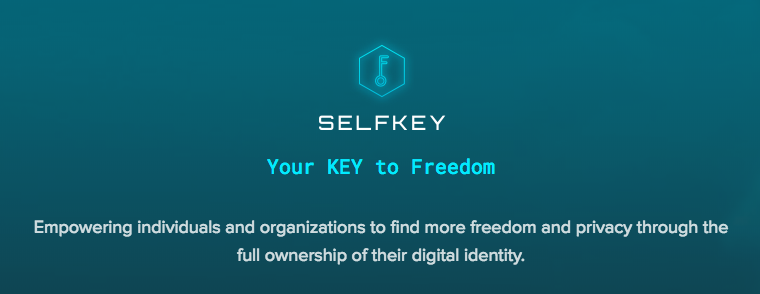
It’s become glaringly clear that our digital identities are not in our own hands—they’re being controlled and abused by giant corporations that making massive amounts of money at our expense. Since our private information is stored in huge centralized databases, security breaches are all too common. Surely you remember the Equifax hack last summer that resulted in the identities of 143 million people being stolen. That’s over 45% of the population of the United States!
Recognizing the importance of solving this problem, the team behind SelfKey decided to create a solution to decentralize the management of our private information using blockchain.
The problem with companies controlling millions of identities in one database is that all this sensitive information can be hacked at once by a single cybercriminal. These hackers have a huge incentive to break into a single large database, as they can make piles of money by selling the info on the black market.
But if you decentralize the database among all users so that each person controls their own private information, cybercriminals can no longer obtain everyone’s data at once. They can only try to hack into a single person’s account, and the reward is very small.
This is exactly what SelfKey has done. They are putting the power back into the hands of individuals, allowing each person to control their digital information, thus increasing their right to privacy.
In the words of the team:
It is a fundamental human right that an individual, not an outside company, decides what information to share, when to share it, and with whom to share it.
Since SelfKey never stores your data, they can’t ever lose it to hackers or sell it to third parties. SelfKey will never profit by taking advantage of your private information, because they don’t actually have control over any of your information—only you do.
The team believes the SelfKey Network is much more than just a place to securely store and share your encrypted data. As the SelfKey team put it:
SelfKey matches the current and future needs of evolving modern societies and the global Internet, ensuring human rights and fundamental freedoms of identity are met.
This isn’t just a lofty vision, either. SelfKey is actively testing the alpha version of their Identity Wallet right now, and the wallet is on track to be released to the public very soon. This is wonderful news for those who feel they have lost control over their personal information and want to take matters back into their own hands.
Horizon State
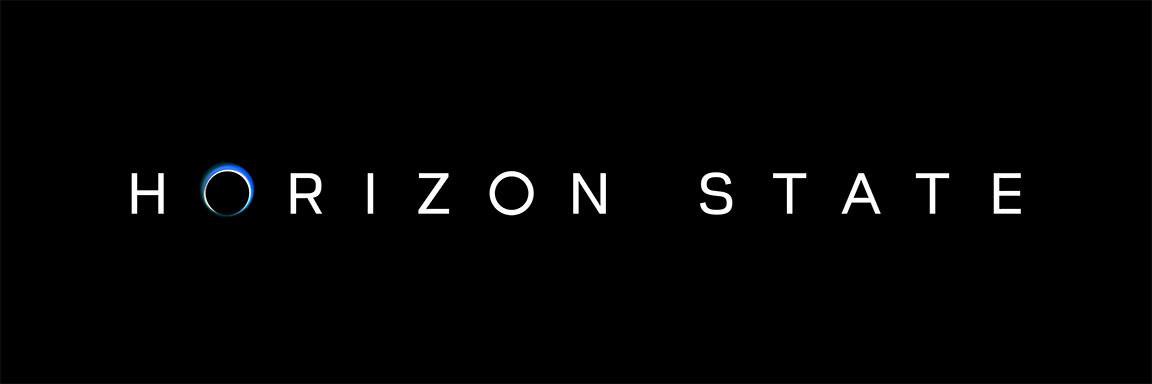
If a country is a true democracy, then every citizen should have the right to vote, and the government should ensure that elections are not rigged or tampered with. Seems like a no-brainer, but unfortunately, this is still a huge issue in today’s world. The world still relies on using paper ballots for our most important elections, which allows voter fraud to easily occur.
Horizon State is a firm working to bring blockchain to the voting populace. The team has essentially created a secure digital ballot box that cannot be hacked, which means that results cannot be altered and voter identities are protected.
The platform enables voting processes to be decentralized, autonomous, and far more convenient, since voters can participate right from their computer or phone.
Investopedia wrote:
Horizon’s secure digital ballot box represents a cost-effective and smart solution to the problems inherent in today’s voting procedures.
Blockchain is paving the way for our voting privileges to be completely secure, ensuring our voices are heard.
Substratum
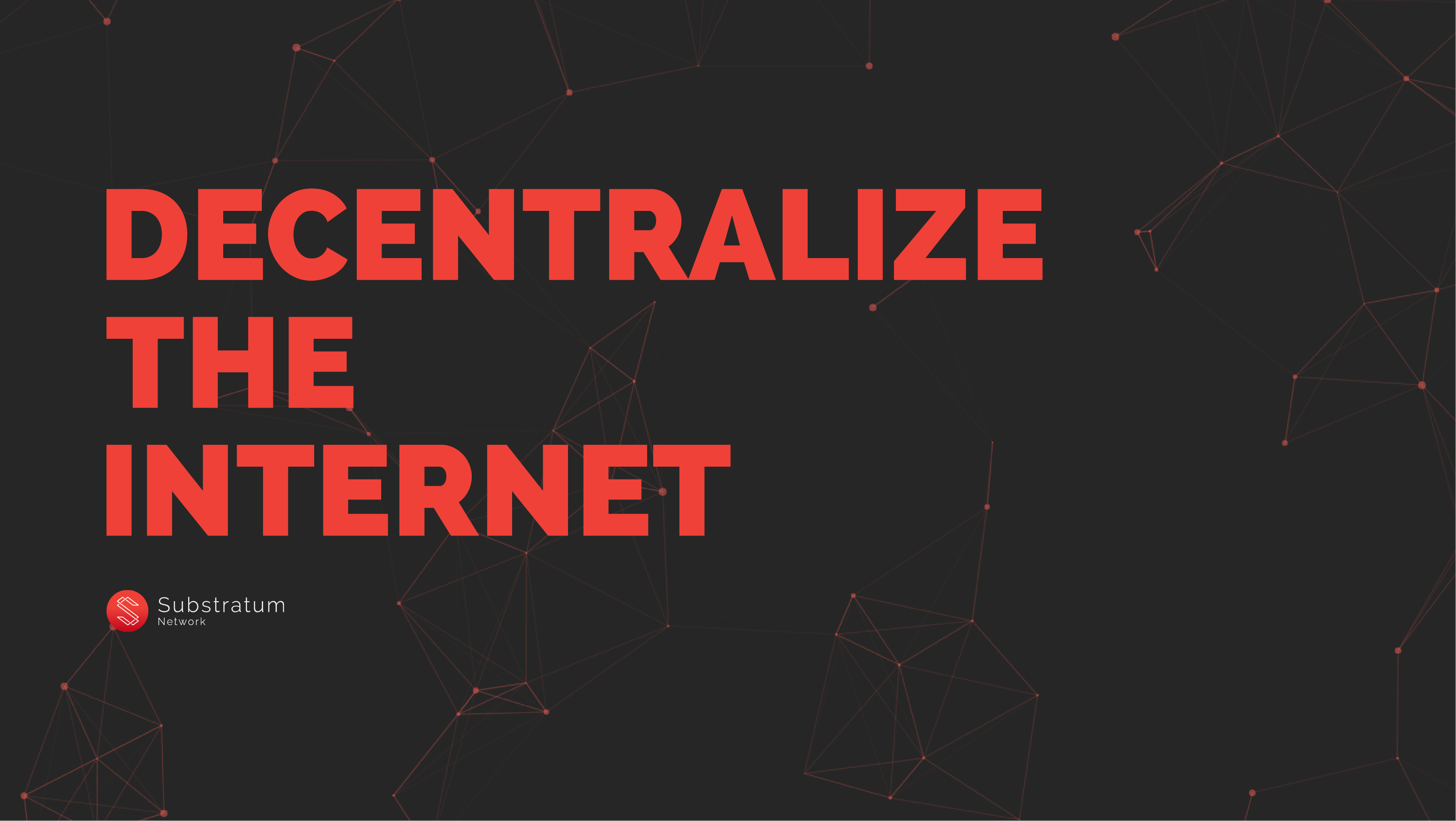
Did you know that a majority of the governments in the world are currently censoring the internet in some way?
Freedom House—an NGO that conducts research and advocacy on democracy, political freedom, and human rights—has been releasing reports each year on the state of internet freedom in countries worldwide. In their most recent 2017 report, research concluded that only a dismal 23% of the world’s internet users have free, unrestricted, and uncensored internet access.
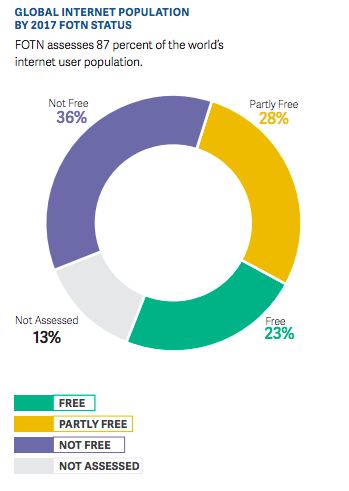
Reporters Without Borders, an NGO that advocates freedom of the press, has published a list of countries that are “Enemies of the Internet,” which they explain are classified as so because “all of these countries mark themselves out not just for their capacity to censor news and information online but also for their almost systematic repression of Internet users.”
Countries on this list include China, Russia, India, Vietnam, Saudi Arabia—and perhaps shockingly—the United States and the United Kingdom, among others.
So what can blockchain do about this global problem of internet repression?
What’s where Substratum comes in. Substratum is an open-source network that is allowing anyone in the world to allocate spare computing resources to decentralize the internet.
Users can host websites or applications by running a node on the Substratum blockchain. These nodes forward content from hosts to web users around the world, and hosts running nodes get paid in cryptocurrency for helping support a decentralized internet. And even more importantly, people who live in places with censored internet can bypass their government’s restrictions and access whatever content they wish—without the need for VPNs or Tor.
In the words of Substratum’s co-founder Justin Tabb:
One day, Americans might wake up and realize they don’t like big brother watching over their shoulder and having corporations track everything they do. And when that happens, Substratum will be there.
If you believe everyone deserves the freedom to access uncensored, unrestricted information and content on the web, consider learning more about Substratum and running a node on your own computer. The more people that participate, the more decentralized and free our internet can become.
Sapien
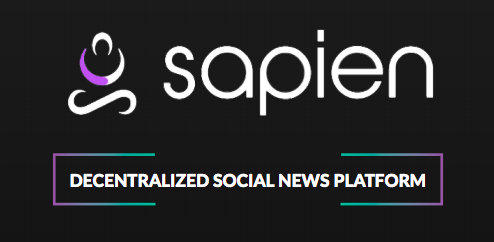
It’s no secret that the social media world has some serious problems. Fake Twitter bots are spreading propaganda and lies like wildfire. Our personal data is being collected and used by companies that turn around and sell it to the highest bidder, as we’ve most recently seen with Facebook allowing Cambridge Analytica to harvest the data of over 50 million users.
Every day, we are allowing social media platforms to invade our privacy and profit from selling our data. A social media revolution is long overdue… but what can be done? The whole world isn’t just going to stop using social media.
We need a new platform that truly serves its users instead of exploiting them. Sapien could be just the solution we need.
Sapien is a democratized, tokenized, reputation-based social news platform that rewards millions of digital content creators without any centralized intermediaries. Even better, Sapien shares advertisement revenue with its users.
In the words of the Sapien team:
It is painfully clear that modern social news sites are both obsolete and dangerous. Sapien rewrites the social network experience to champion the user and the truth while leveraging the powerful capabilities of the blockchain.
It will definitely be a difficult task to switch from Facebook, Twitter, Instagram, etc., to a decentralized social media platform. Sapien’s platform is still in beta mode.
Mass adoption of a decentralized social media platform seems unlikely any time soon, but it’s entirely possible that people will increasingly become more and more fed up with big corporations taking advantage of their information, and this will precipitate a move to something better.
That something could possibly be Sapien, if the team can release a working decentralized social media platform for the masses. Fingers crossed that they do.
DNN (Decentralized News Network)

In case you haven’t noticed, today’s news is completely plagued by misinformation, sensationalistic clickbait, and unbalanced reporting.
In the U.S., 90% of news coverage—whether it’s written content, television broadcasts, or radio—is controlled by just 6 gigantic media conglomerates. When all of the media you consume comes from the same 6 sources, chances are you aren’t getting the full, unbiased picture on any news story out there.
These media companies are controlling the vast majority of what gets published and aired, which means they’re controlling how most of the public perceives current events. It’s pretty terrifying when you think about it.
You should know by now that blockchain’s biggest superpower is decentralization, which is exactly what the news industry so desperately needs. DNN, short for Decentralized News Network, is working on just that.
Their website states:
Our mission is to create news content that is both empowering for its readers, as well as representative of the integrity of its writers. We aspire to become the most trusted and democratic news alternative to mainstream media.
DNN aims to be a decentralized, collaborative news platform that provides factual content to its users. DNN is built on the Ethereum blockchain so that it can never be hacked into, taken down, or censored. They’ve created an extensive review process that allows fact-checkers to validate submitted content for overall accuracy and legitimacy, much like Wikipedia does.
DNN involves readers, writers, reviewers, and publishers providing key contributions that make up the underlying functions and structure of the network. This means no one person or company is controlling the content—it’s a collaborative effort among all its users to ensure factual and thorough perspectives of current affairs are published on the platform.
Everyone deserves free, factual news coverage to know what’s actually happening in the world. This is yet another example of how blockchain has the potential to completely transform our world for the better.

